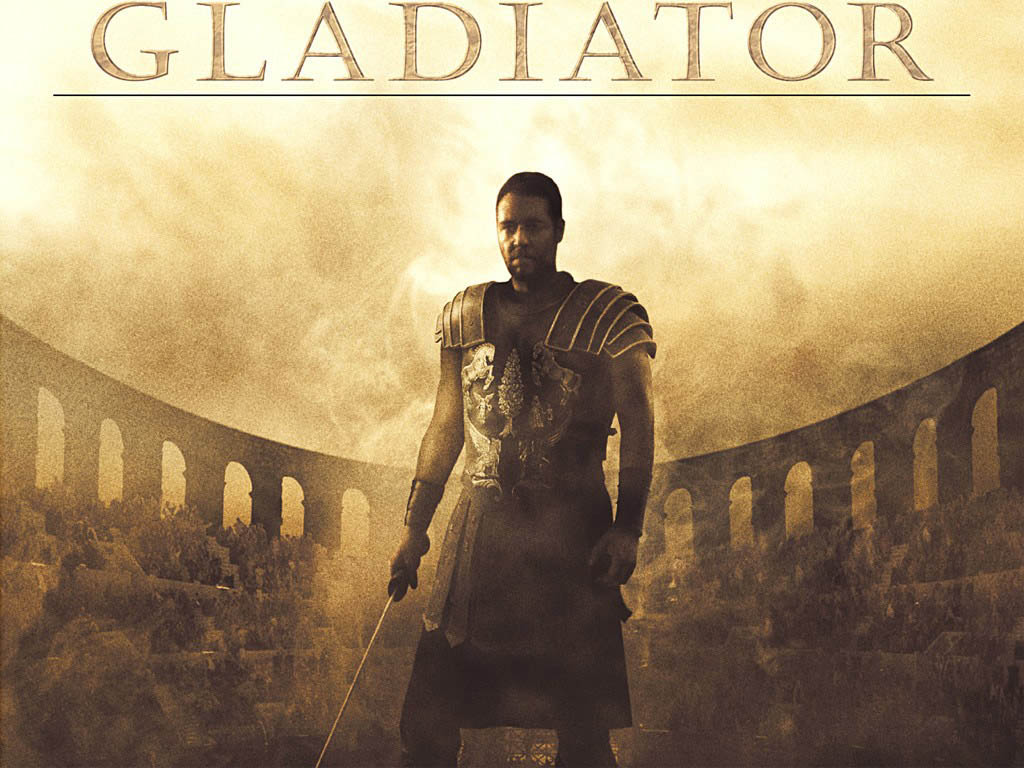The film “Gladiator” sure gives me pure entertainment every time I watch it. I saw it first as a high school student. At the time of this writing, it has been eight years since the movie was released, but it never ceases to fascinate me until now. I guess I did not outgrow it.
Gladiator goes beyond the typical impressions that any film with epic proportions would attempt to give you. It delves deep into the realm of honor and combat, reminding us that fighting was once a noble deed, but more often, warriors are used as pawns in a gladiator arena in order to satisfy a mob with degenerating values, at the whim of an emperor who carries the name Caesar but has in fact departed from the true glory of Rome.
Russell Crowe plays the role of Maximus, a powerful and skillful general during the imperial days of Marcus Aurelius. The film starts with a searing battle sequence between the disciplined, impeccable Roman Army, against a smothered, wild and barbaric German Horde. Maximus leads his men into battle by flanking the enemy and slaughtering them. The victory marked the Golden Age of the Roman Empire, and afterwards Marcus Aurelius even offered Maximus a position as Lord Protector of the new republic of Rome.
However, things suddenly came to a dramatic twist when Commodus, Marcus Aurelius’ son, murdered his father. When Commodus became emperor and Maximus refused to give him his loyalty, the new emperor arrested Maximus and had his family killed. Maximus, however, was able to escape and was picked up as a slave. He eventually became a Gladiator in a distant Roman province.
Maximus, so well skilled in combat, became well known as a Gladiator. Eventually his fame instantly spread abroad, and he was invited to the Roman Collosseum to fight there. In Rome, he will meet the emperor again for a final face off, and to execute the revenge he has so longed for.



